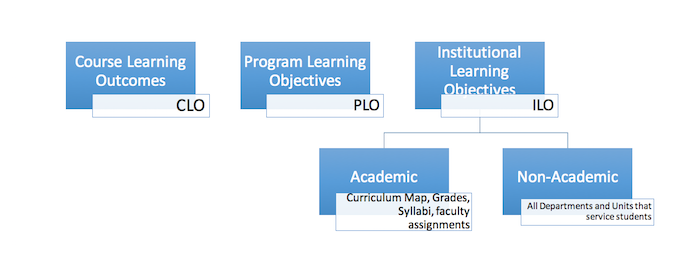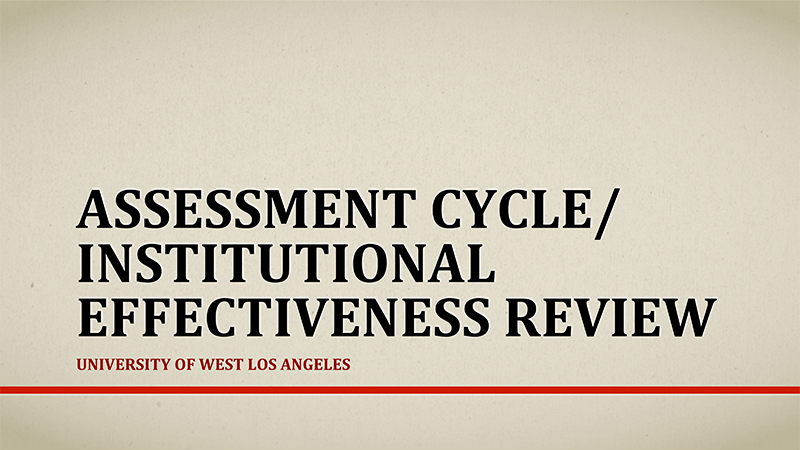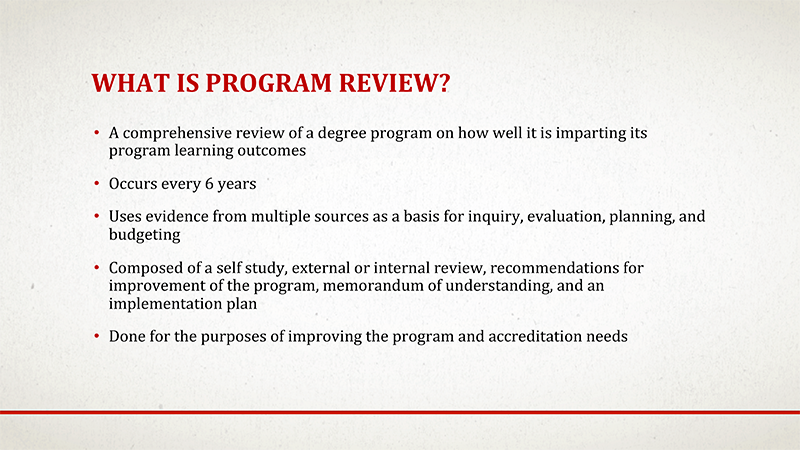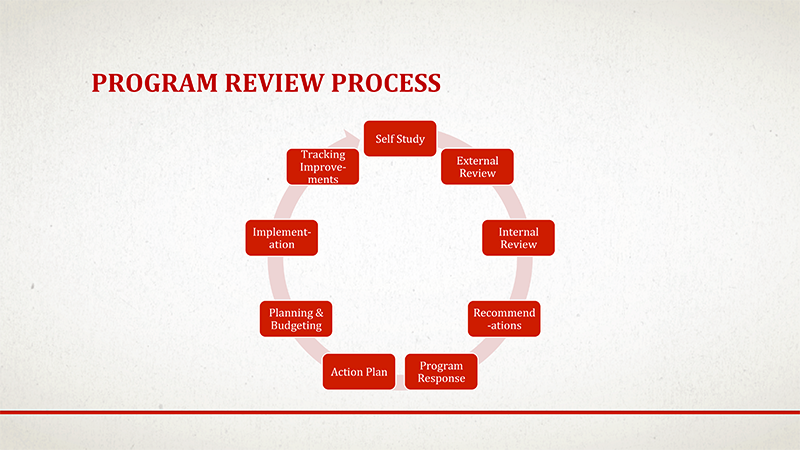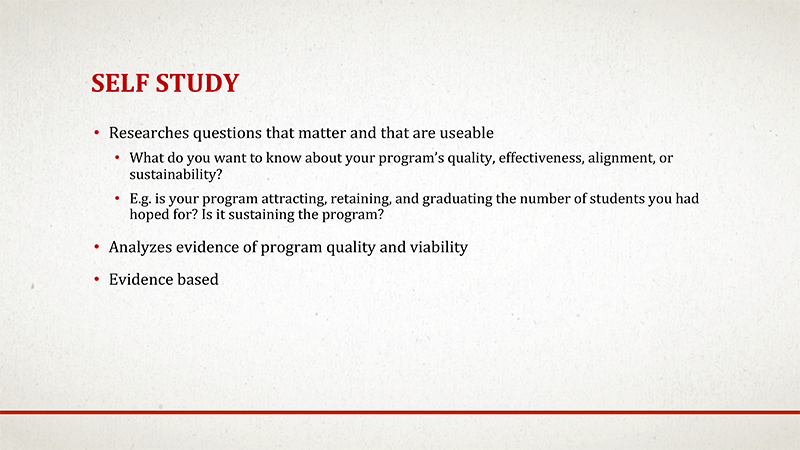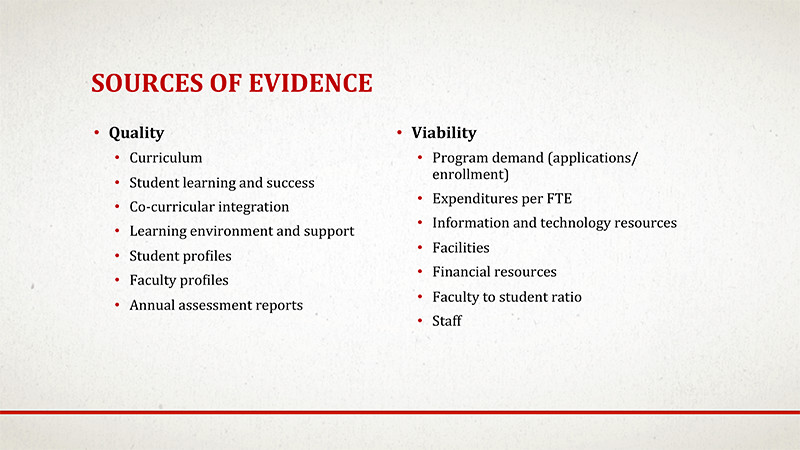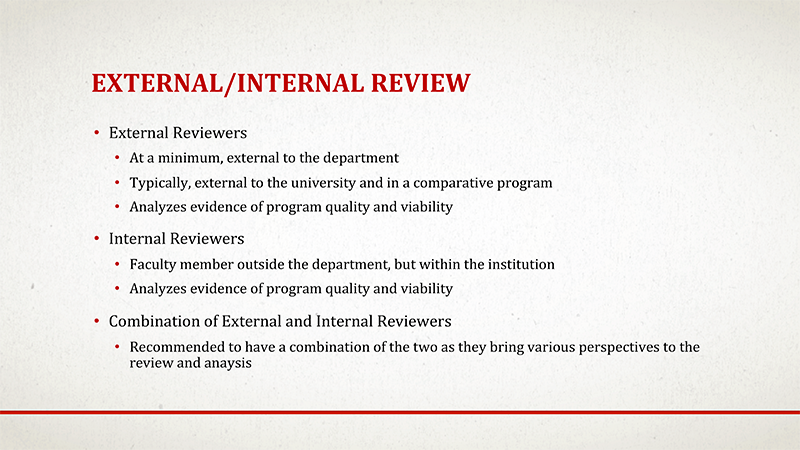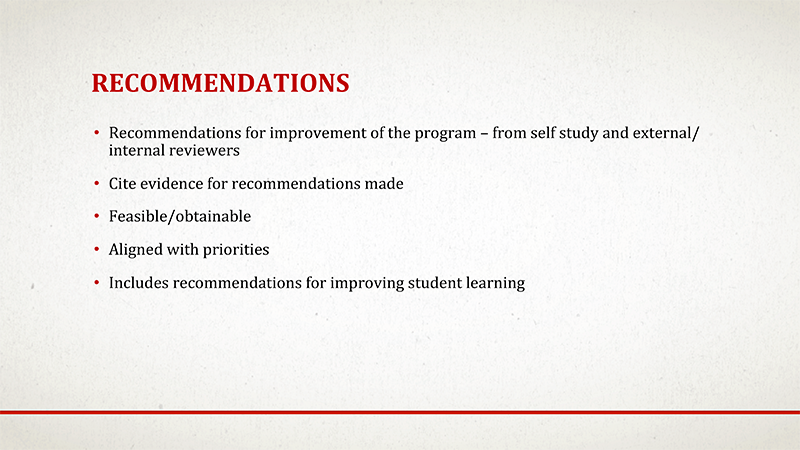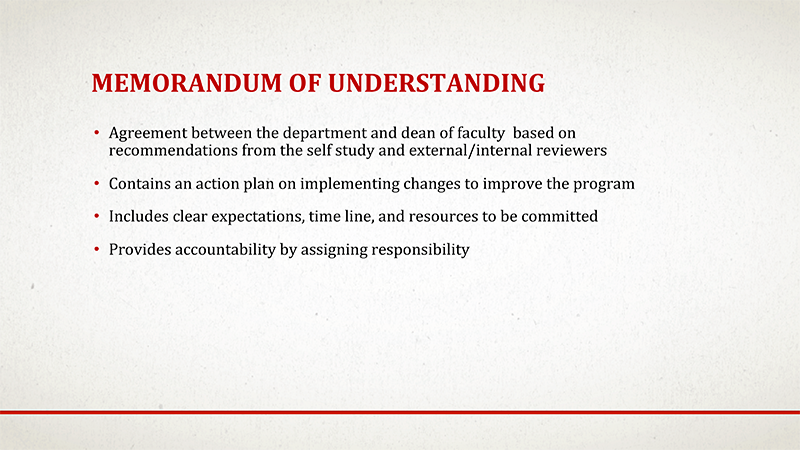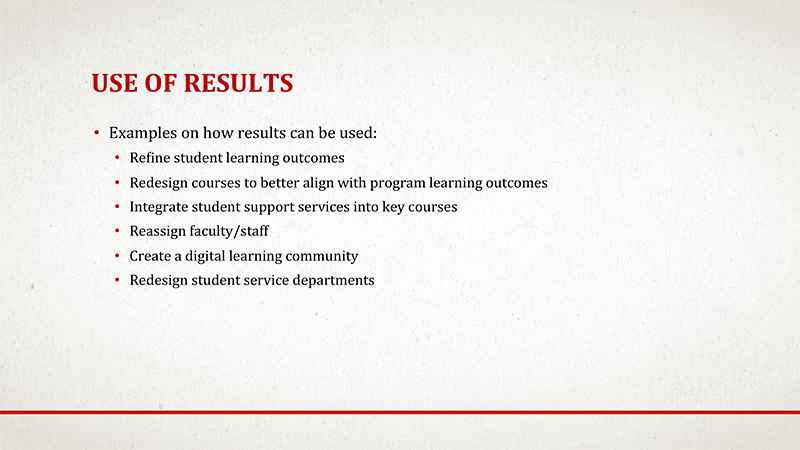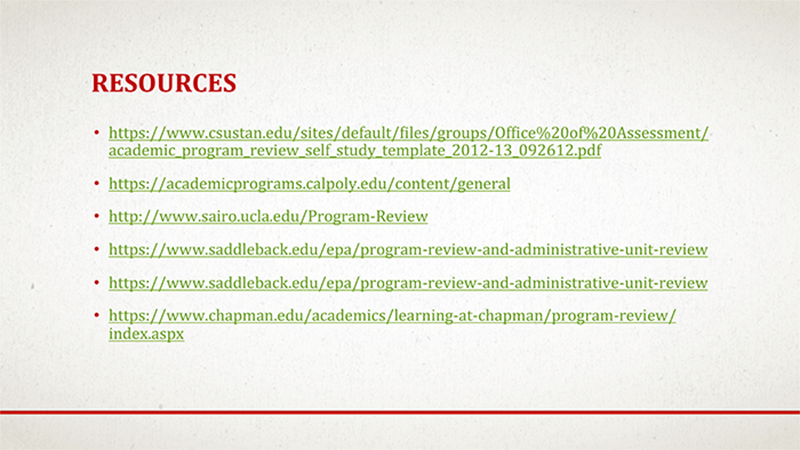Office of Assessment
Assessment
As an institution of higher learning, UWLA is committed to providing a quality education
by aligning its curriculum, course content, and student services with its mission and
values. Both academic and non-academic programs are therefore assessed to measure the effectiveness of UWLA in achieving its mission.
Assessment Directives
UWLA will establish goals for all its academic programs and each of its organizational
units. These goals will be derived from and consistent with the overall mission of the
university and responsive to the university strategic plan.
Progress on assessment plans will be reported annually, following guidelines developed
by Assessment and Institutional Research.
Assessment cycle:
- Student Learning Outcomes (SLOs) will be assessed each Term / Semester
- At least one Program Learning Objectives (PLOs) will be assessed annually in each school. All PLOs will be assessed over a six-year period.
- Institutional Learning Outcomes (ILOs) will be assessed annually. All ILOs will be assessed over a six-year period along with program reviews for academic and non-academic departments
Institutional Learning Outcomes:
The goal of UWLA is to offer a premier education. As such, the University achieves its mission by ensuring that academically and professionally our graduates will:
- Make progress towards becoming engaged and self-reliant learners demonstrating habits of intellectual inquiry and striving toward their maximum potential.
- Experience an academically rigorous learning environment that challenges them to develop the necessary verbal, written and critical analysis and critical thinking skills needed to evaluate complex issues.
- Develop an understanding of advanced concepts and major modes of inquiry using a variety of methodologies/approaches.
- Be prepared to contribute to a diverse democratic society with a pluralistic perspective of the world.
- Be able to demonstrate civility, empathy, interpersonal competence, social responsibility and peaceful conflict resolution within the context of their chosen field.
- Recognize the ethical dimensions of decisions and actions as well as demonstrate the ability to engage in the ethical reasoning necessary to exercise responsibility as an ethical individual, professional, local and global citizen.
Program Learning Outcomes: School of Law
The educational outcomes of a School of Law graduate will be able to:
- (PLO 1) Identify and express legal issues. (Issue)
- (PLO 2) Identify and explain an understanding of substantive and procedural law. (Rule)
- PLO 3) Apply the facts to the applicable law in an analytical fashion. (Analysis)
- (PLO 4) Demonstrate the requisite critical and legal analysis in support of their conclusions. (Conclusion)
- (PLO 5) Identify and apply the rules of professional responsibility and ethics to the practice of law. (Ethics)
- (PLO 6) Employ the professional skills necessary for competent and ethical practice of law through proficiency in legal analysis; critical reasoning, problem solving; oral and written communication; legal research. (Practice)
Program Learning Outcomes: School of Business
Master of Science Program
Students in the Master of Organizational Leadership and Business Innovation degree program will receive a substantial and relevant education in the important areas of knowledge in a field of study, its principle resources, and its connection with other areas of inquiry while making progress in becoming self-reliant learners. Upon completion of the Master of Organizational Leadership and Business Innovation degree, students will be able to:
- Describe the relationships between the curriculum and the advanced practices and skills in their field of interests.
- Demonstrate the necessary verbal, written, critical analysis and critical thinking skills needed to evaluate advanced and complex business issues and high-level business and social related topics.
- Contribute to a diverse society with a pluralistic perspective based on a foundation of reason, ethics analysis and critical thinking.
- Demonstrate civility, empathy, interpersonal competence, social responsibility, and peaceful conflict resolution within the context of their chosen field.
- Apply appropriate reasoning for responsibility as individual, professional and global citizens using ethics-based thought processes and analysis.
- Demonstrate firm understanding and advancement in current technology from a innovative perspective to efficiently address business dilemmas as well as utilize techniques for strategic business decisions.
- Apply and evaluate quantitative methods to solve real-world problems presented in numerical graphic form.
- Develop a advanced strategic planning for an organizational unit addressing productivity, quality and efficiency concepts to current business environments.
Bachelor of Science Program
Students in the Bachelor of Science degree program will receive a substantial and relevant education in the important areas of knowledge in a field of study, its principle resources, and its connectedness with other areas of inquiry while making progress in becoming self-reliant learners.
Upon completion of the Bachelor of Science degree program in Business, students will be able to:
- Describe the relationships between the curriculum and the fundamentals of practices in their field of interests.
- Demonstrate the necessary verbal, written, critical analysis and critical thinking skills needed to evaluate fundamental business issues and other business and social related topics.
- Contribute to a diverse society with a pluralistic perspective based on a foundation of reason, ethics analysis and critical thinking.
- Demonstrate civility, empathy, interpersonal competence, social responsibility, and peaceful conflict resolution within the context of their chosen field.
- Apply appropriate reasoning for responsibility as individual, professional and global citizens using ethics-based thought processes and analysis.
- Demonstrate proficiency in current technology from a foundational perspective to efficiently address business dilemmas as well as utilize techniques for strategic business decisions.
- Apply and evaluate quantitative methods to solve real-world problems presented in numerical graphic form.
- Develop a basic strategic plan for an organizational unit addressing productivity, quality and efficiency concepts to current business environments.
